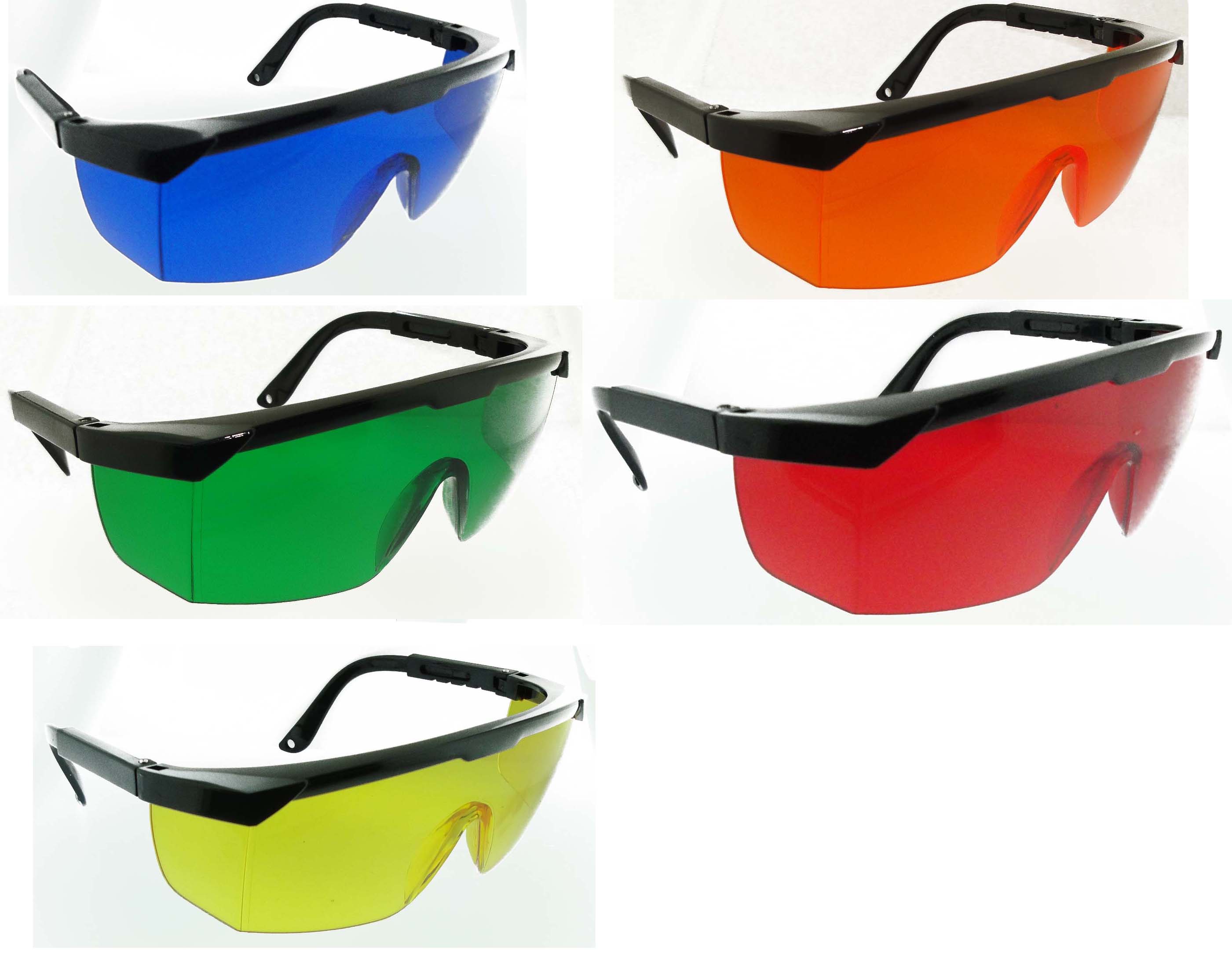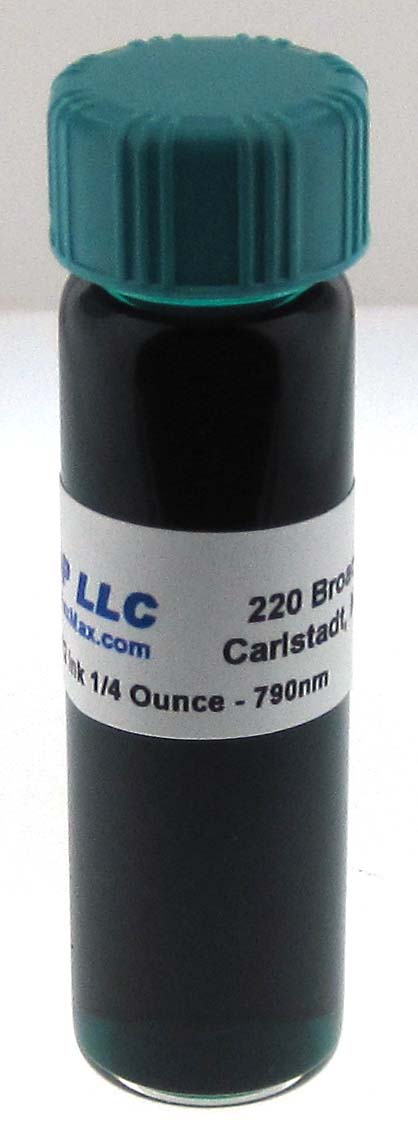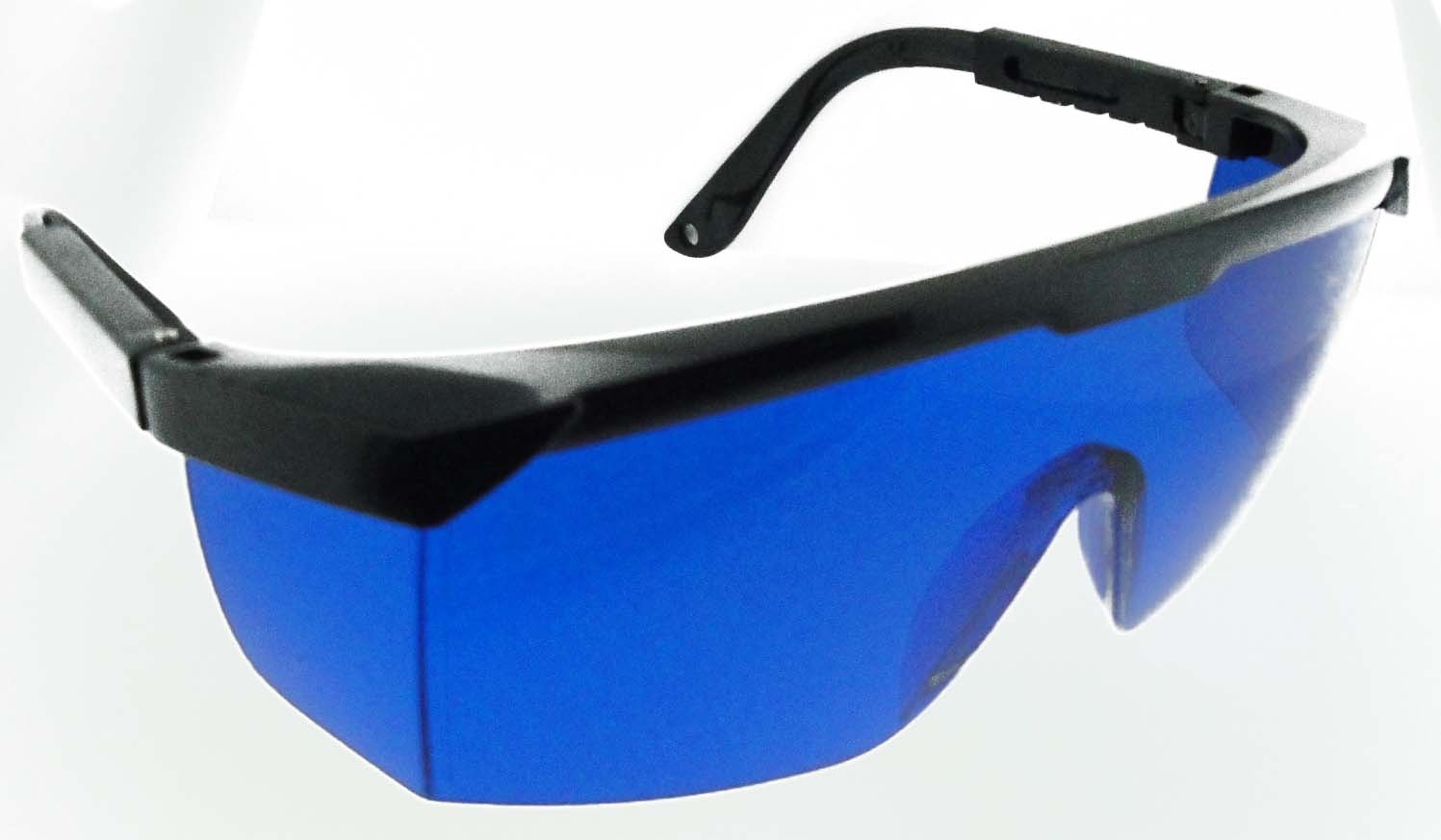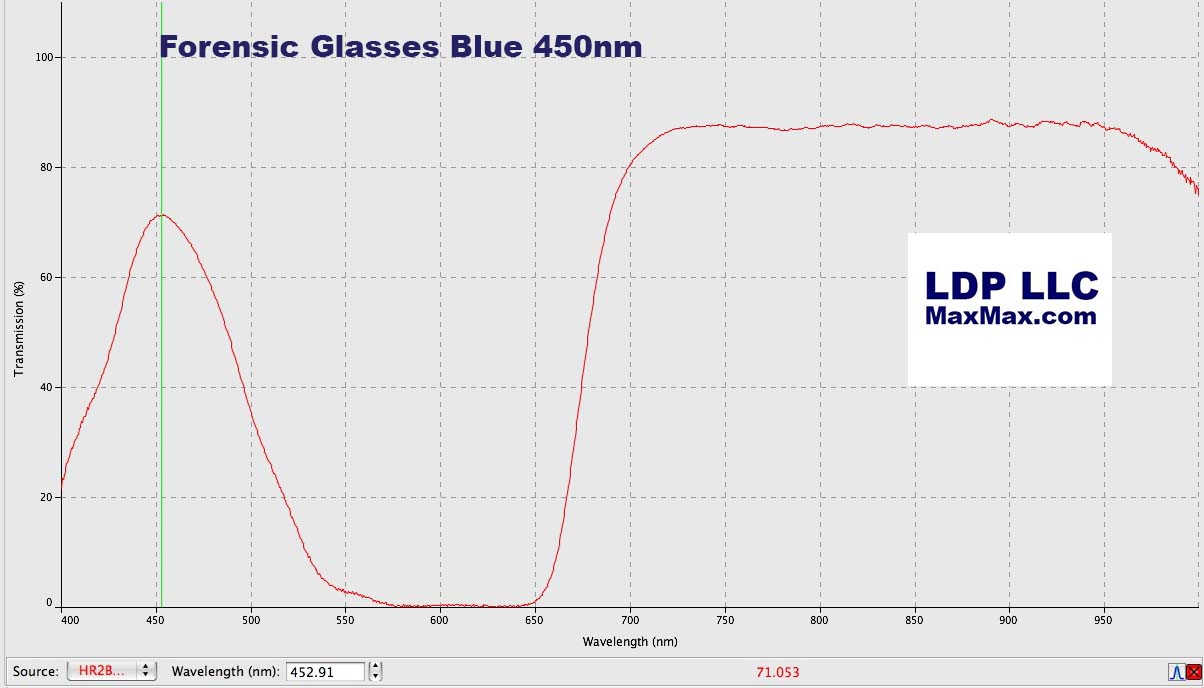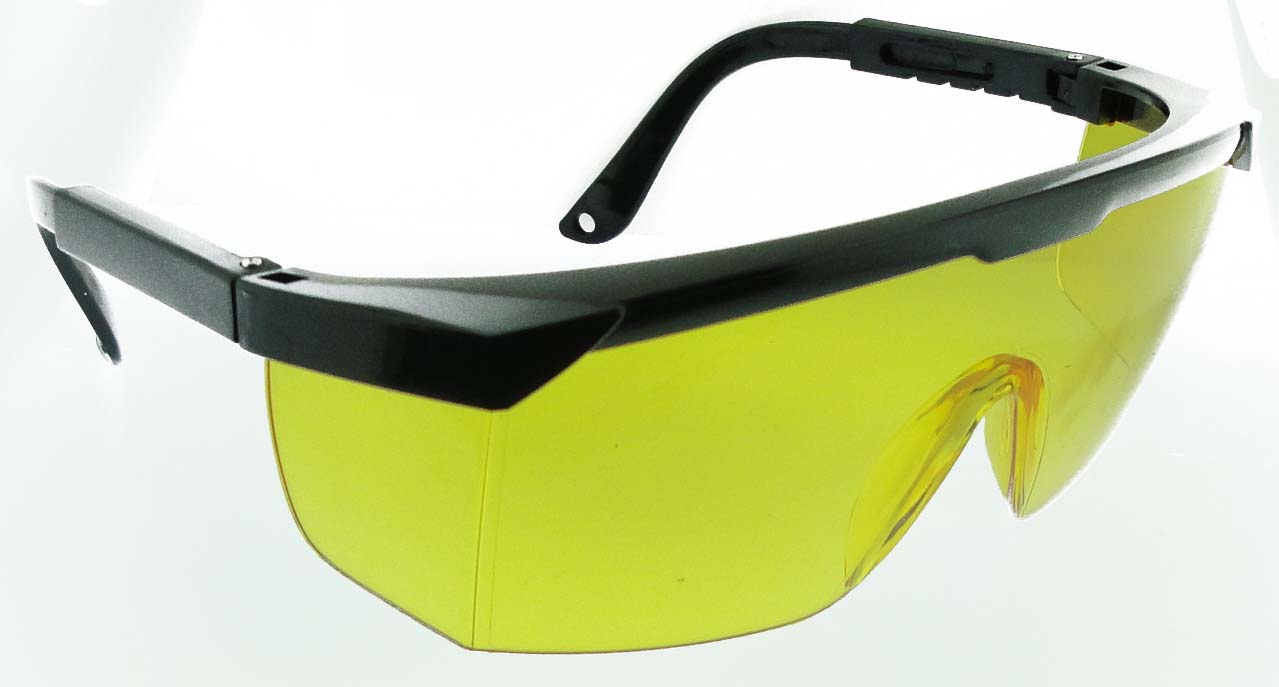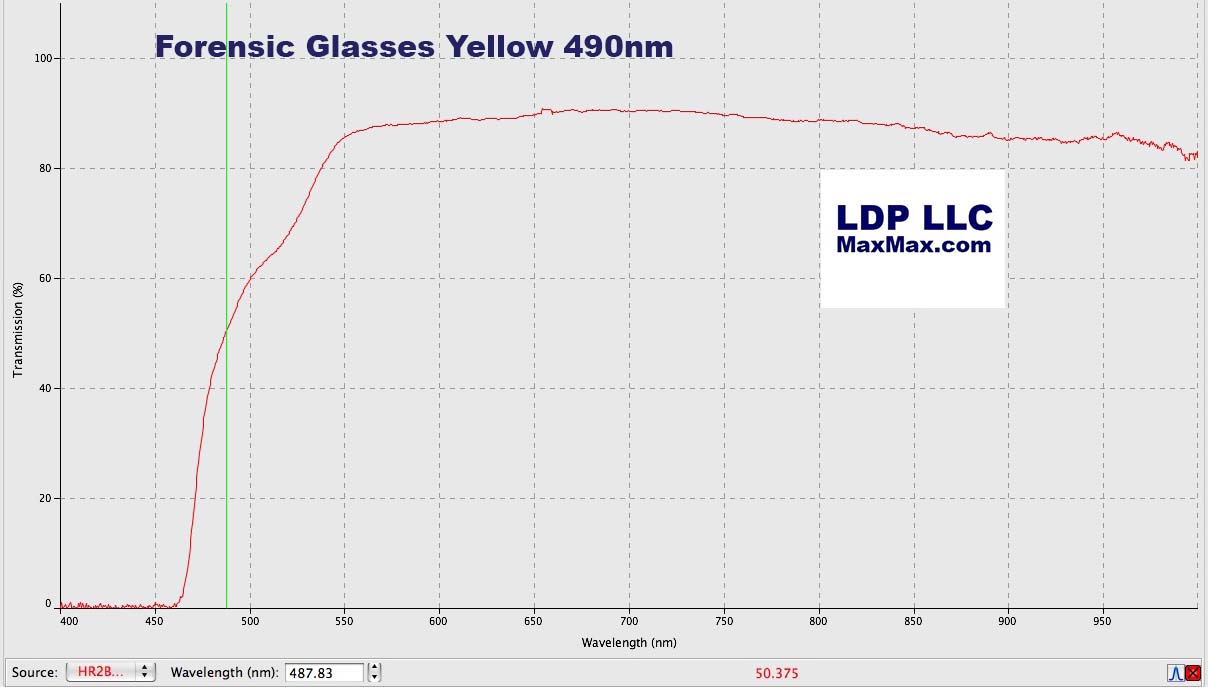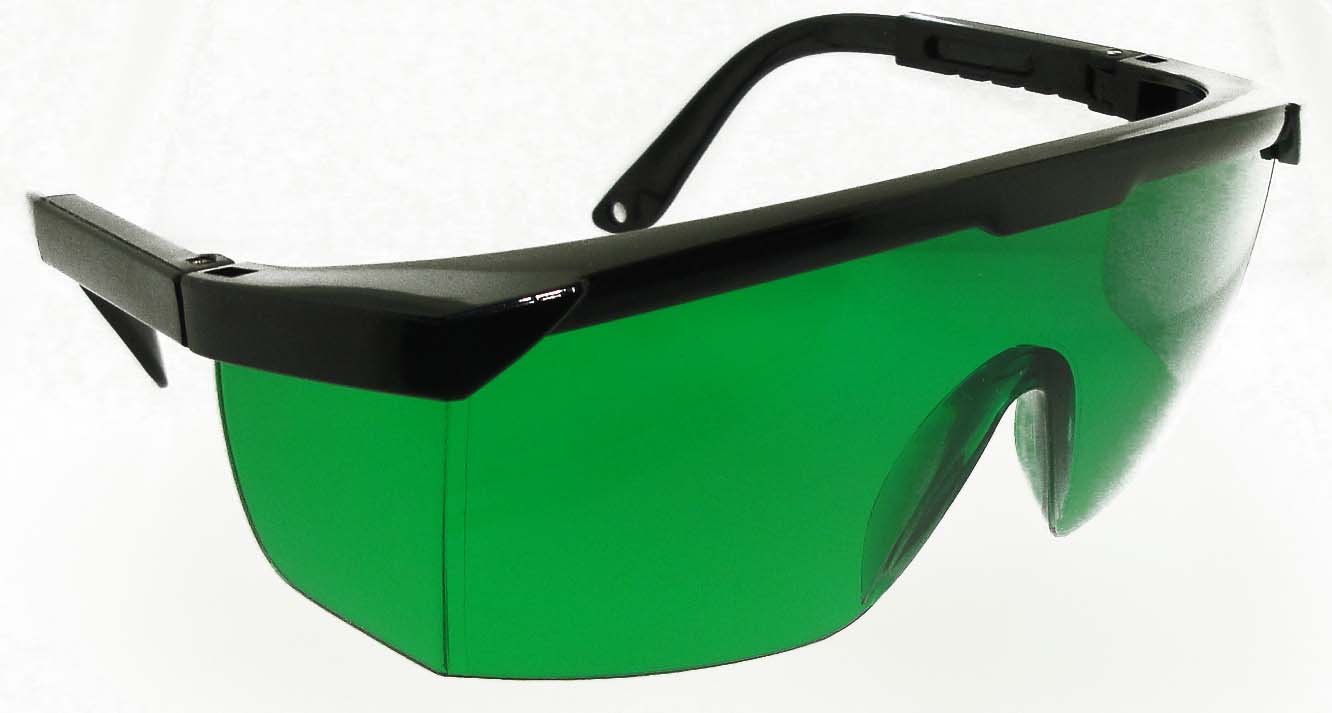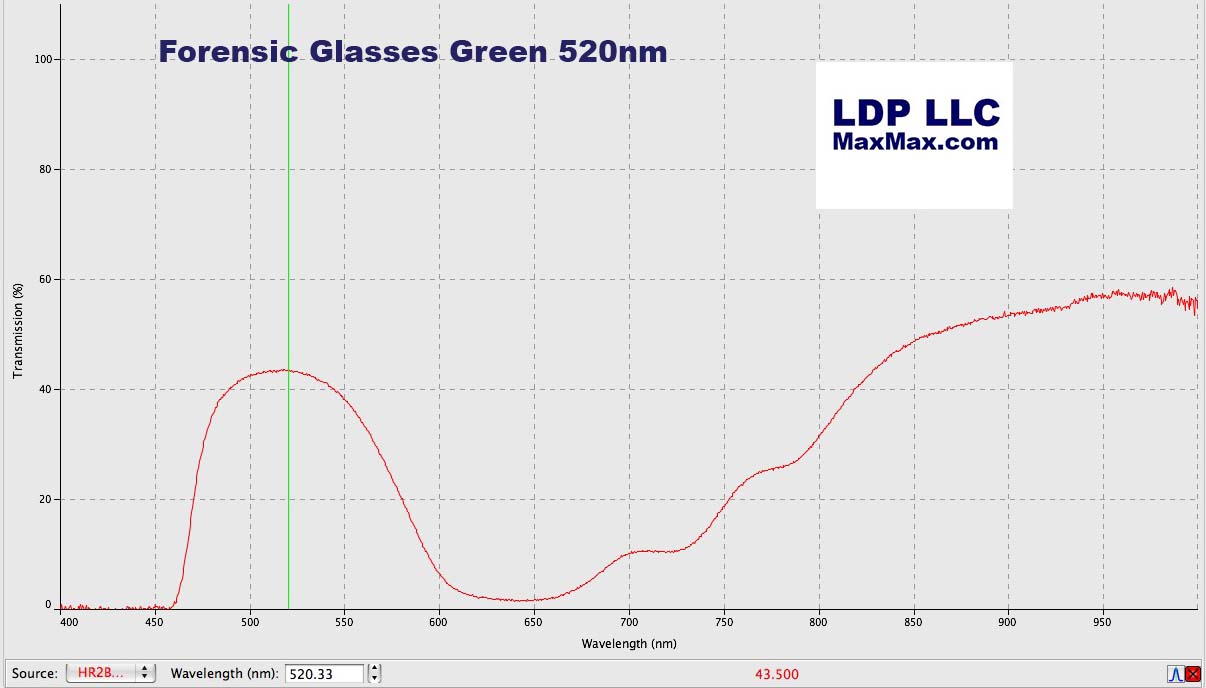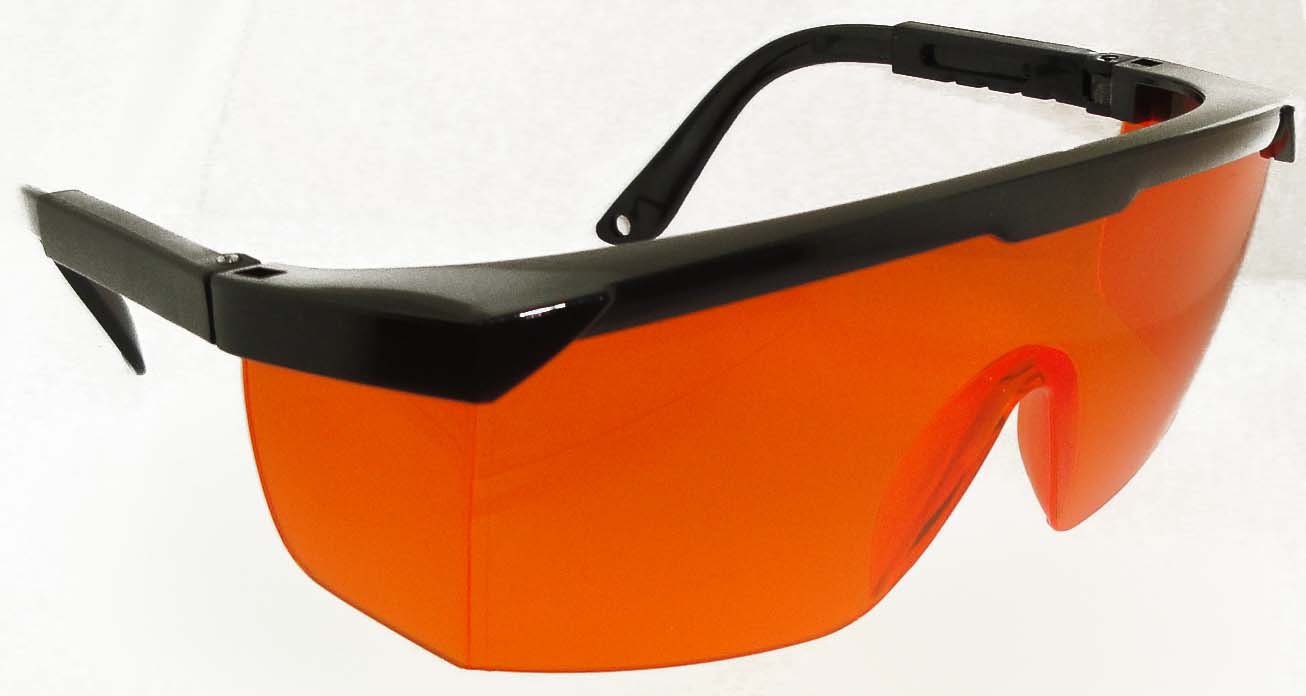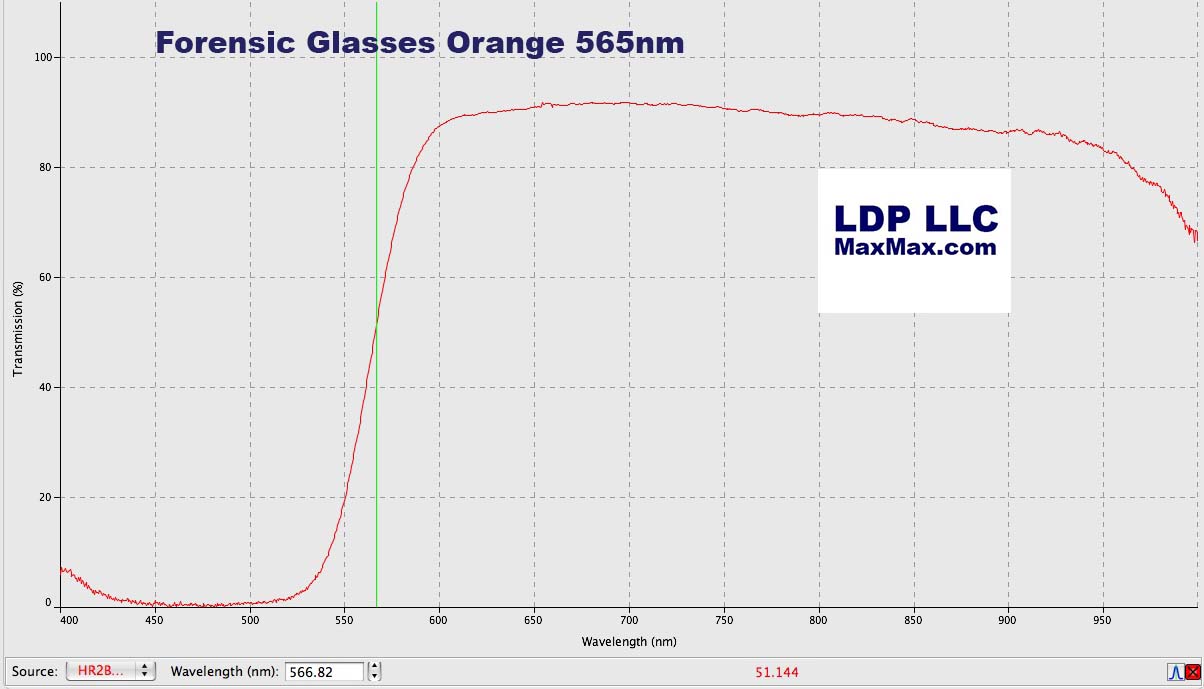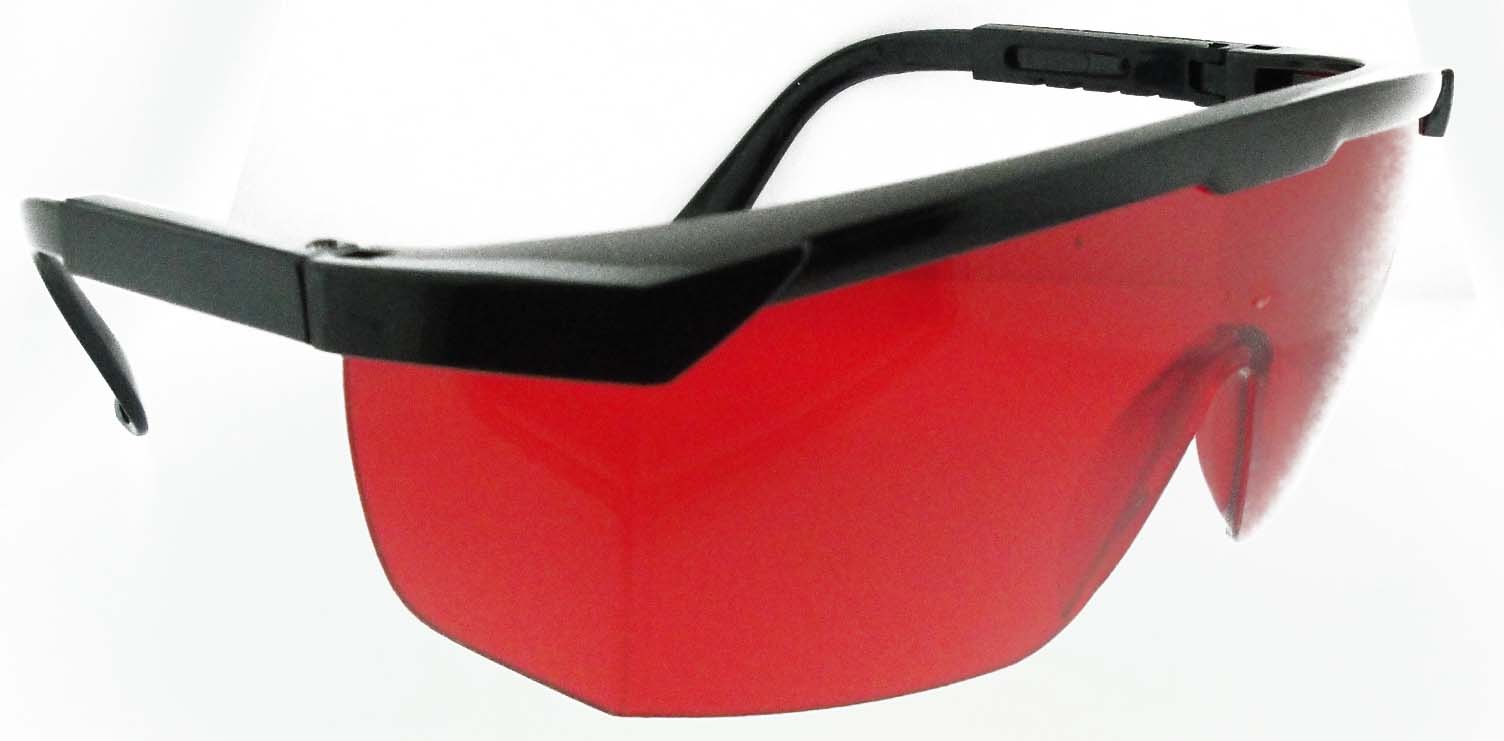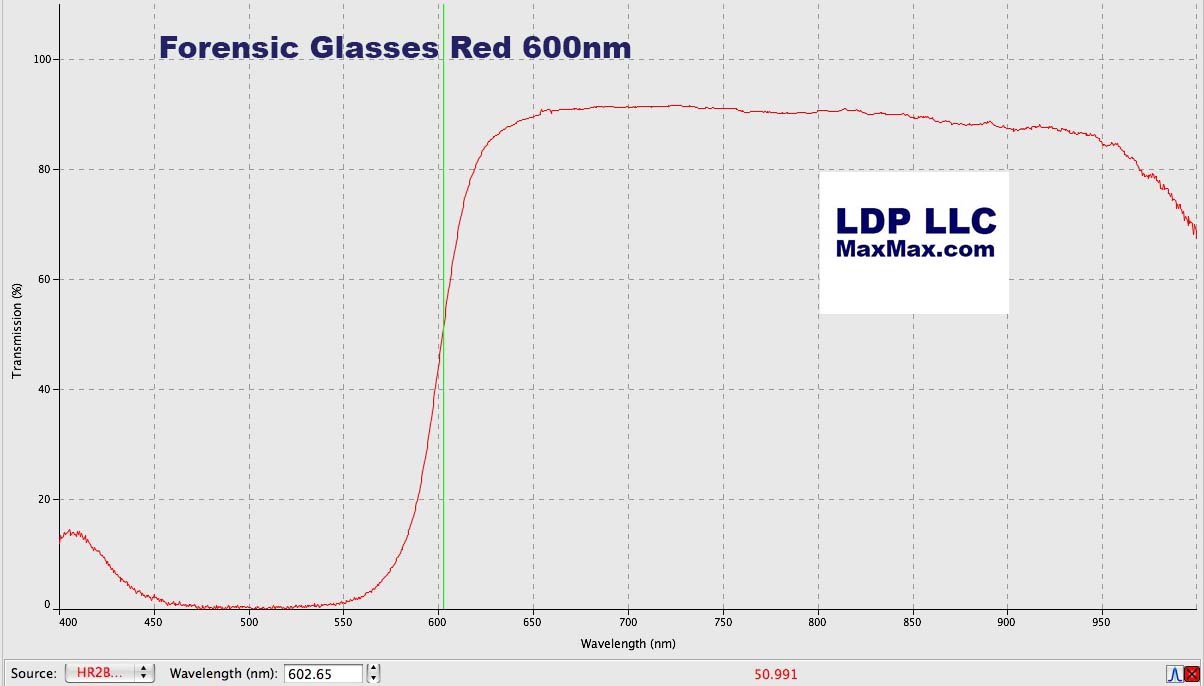Forensic Glasses
To jump to the forensic filter glasses section of our online store, you can click here.
Our custom made forensic safety glasses are designed to assist the user in viewing particular light wavelengths by blocking certain wavelengths while passing others. A common technique is to use a excitation light source of one frequency that causes the item to fluoresce at another frequency. By choosing a forensic safety glass that blocks the excitation light source while passing the fluorescence or emission, the user can view the item being studied.
The FG490 glasses can be usefull to help visualize our IR2 ink and our FG600 glasses can be used to help visualize the IR1 ink
IR1 Ink
Our forensic safety glasses are ANSI Z87.1 certified.
US – ANSI Z87.1
For protective eyewear meant for industrial or occupational use in the US, the governing document is ANSI Z87.1, and it has been in existence, through several iterations, for almost 40 years. OSHA in its regulations (see CFR 1910.133) specifically cites Z87.1 as the minimum performance requirement for protective eyewear, effectively giving it the weight of law. Where a hazard assessment in the workplace indicates that eye/face protection is needed, such protection must be provided, and it must comply with this ANSI standard.
The current edition of the standard is Z87.1-2010. In the standard, eye protectors are either non-impact or impact rated devices. Impact rated protectors must meet the established high mass and high velocity tests, and defined, continuous lateral coverage. The following “high” impact tests apply to lenses, as well as to the frames or product housing:
- A lens retention test is conducted via a “high mass” impact. A pointed 500 gm (1.1 lb) projectile is dropped 50 inches onto the complete protector mounted on a headform. No pieces can break free from the inside of the protector, the lens cannot fracture, and the lens must remain in the frame or product housing. This test is a good measure of the product’s strength, simulating a blow such as from a tool that slips from the work surface or when the lens collides with stationary objects.
- A high velocity test is conducted, at 6 specified impact points, where the projectile is a ¼ inch steel ball traveling at specific speeds depending upon the type of protector. For spectacles, the velocity is 150 ft/sec or 102 mph. The pass/fail criteria are the same as for the high mass test, plus no contact with the eye of the headform is permitted through deflection of the lens. This is meant to simulate particles that would be encountered in grinding, chipping, machining or other such operations.
Features
- One piece wrap around colored polycarbonate safety lens
- Adjustable length arms for comfortable wearing
- Holes in rear arms for attaching a neck strap
Models
- FG450: Blue - 450nm
- FG490: Yellow - 490nm
- FG520: Green - 520nm
- FG565: Orange - 565nm
- FG600: Red - 600nm
FG450
{product 15800|name|cart|quantityfield|picture|border|menuid:2670|pricedis3}
FG490
{product 15801|name|cart|quantityfield|picture|border|menuid:2670|pricedis3}
FG520
{product 15802|name|cart|quantityfield|picture|border|menuid:2670|pricedis3}
FG565
{product 15803|name|cart|quantityfield|picture|border|menuid:2670|pricedis3}
FG600
{product 15804|name|cart|quantityfield|picture|border|menuid:2670|pricedis3}
